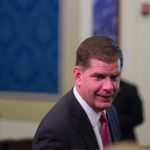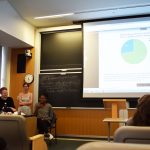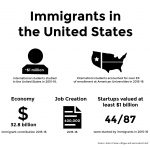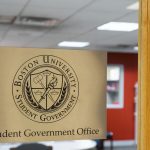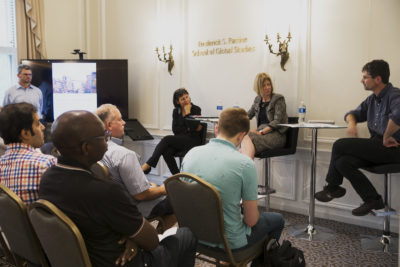
The Global Development Policy Center hosted a panel held at the Frederick S. Pardee School of Global Studies on Thursday evening to have a conversation about the state of the global economy in the wake of the 2008 financial crisis.
This was the newly-established GDPC’s first time hosting an event. The center’s mission is to “foster policy oriented research, financial stability, human wellbeing and environmental sustainability,” said Kevin Gallagher, research director of Pardee’s Center for Finance, Law and Policy.
Gallagher, who planned the talk, said he thinks that the financial crisis is important to college students as it was a pivotal moment in U.S. history.
During the talk, panelists responded to whether they thought the world was safer for stability and development 10 years after the crisis.
Panelist Barbara Fritz, an economics professor at the Institute of Latin America in Germany, began the conversation explaining how the crisis affected Latin America.
“Usually Latin America — when suffering from [crises] — suffer from sudden financial outflows and sudden stops,” she said. However, she noted that the contrary is now happening in the region, which is experiencing higher inflows.
Fritz said it remains difficult to accurately assess the condition of global economic stability after the crisis.
Panelist and economics specialist Ilene Grabel said she could not affirm whether the world is sound for global development.
“The world 10 years out from the crisis is, in many respects, different, and some differences matter really deeply in the perspective of financial resilience,” said Grabel, a professor at the Josef Korbel School of International Studies.
Grabel also spoke extensively on the International Monetary Fund as well as the effect the crisis had on developing countries.
“We are looking out on an unsettled world that is marked by substantial shifts in regional, political, economic, and geopolitical realignments,” she said.
Meanwhile, Eric Helleiner, a political science professor at the University of Waterloo, added to the discussion by listing areas that need improvement, including regulations, fragmentations and geopolitics.
He added that there are still many uncertainties, suggesting a lack of coordination on crisis management.
Several attendees expressed that discussing the impact of this financial crisis is important as its effects are felt today.
Pardee graduate student Leanne Violette said she appreciated the diversity of the panelists in terms of their experience and backgrounds.
“It was great to have all these different academics from all over the world interacting with the idea of global governance,” she said. “For there to be a global perspective was really interesting.”
BU Humphrey fellow Waqas Munir said he thinks the topics should be discussed in order to ensure future growth and stability.
“It’s very important that there are settings like this [where] we review what policies have worked in the past so that it’ll be better for our future generations,” the researcher said.
Pardee graduate student Susan Dass said she found it helpful to hear real-world accounts at the panel as compared to the information she learns in her classes.
“[My classes] here have talked about the financial crisis and the complications of it, but it’s been very basic,” Dass said. “So to have people who have real-world experience really helps.”
After the panel, Gallagher said he wants to bring professors and students from across campus to work together on research that can help the community.
“We’re not only going to be a university-based think tank,” he said, “We’re going to be a university-based do tank.”

